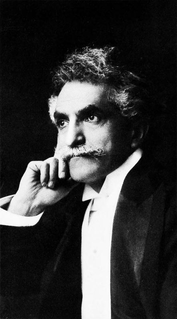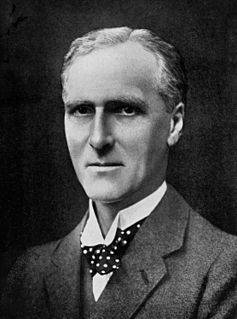A Quote by A.J. Ayer
If one takes full account of the persecution of heretics, the frequency and savagery of the religious wars which Christianity had endangered, the harm caused, especially to children, by the pernicious doctrine of original sin, a case could be made for saying that the world would have been better off without Christianity.
Related Quotes
At the bottom of religious persecution is the doctrine of self-defence; that is to say, the defence of the soul. If the founder of Christianity had plainly said: 'It is not necessary to believe in order to be saved; it is only necessary to do, and he who really loves his fellow-men, who is kind, honest, just and charitable, is to be forever blest' - if he had only said that, there would probably have been but little persecution.
The true gospel is radically exclusive. Jesus is not a way; He is the way, and all other ways are no way at all. If Christianity would only move one small step toward a more tolerant ecumenicalism and exchange the definite article the for the indefinite article a, the scandal would be over, and the world and Christianity could become friends. However, whenever this occurs, Christianity ceases to be Christianity, Christ is denied, and the world is without a Savior.
In the Christian world, as you remember, Christianity is in the 21st century, Islam is in the 15th century. I don't mean to say that Islam is backward; I mean to say that there are certain experiences that it hasn't gone through. Christianity had the great religious wars of the 17th century. Islam, fortunately for the Muslims, did not have that. Christianity worked out a system of toleration. Islam was always more tolerant of Christendom.
This pride of race is a quality which the German, fundamentally, does not possess. The reason for this is that for these last three centuries the country has been torn by internal dissension and religious wars and has been subjected to a variety of foreign influences, to the influence, for example, of Christianity-for Christianity is not a natural religion for the Germans, but a religion that has been imported and which strikes no responsive chord in their hearts and is foreign to the inherent genius of the race. (13th February 1945)
The most devastating thing though that biology did to Christianity was the discovery of biological evolution. Now that we know that Adam and Eve never were real people the central myth of Christianity is destroyed. If there never was an Adam and Eve there never was an original sin. If there never was an original sin there is no need of salvation. If there is no need of salvation there is no need of a Savior. And I submit that puts Jesus, historical or otherwise, into the ranks of the unemployed. I think that evolution is absolutely the death knell of Christianity.
As I conceive this doctrine to be a gross misrepresentation of the character and moral government of God, and to affect many other articles in the scheme of Christianity, greatly disfiguring and depraving it; I shall show, ... that it has no countenance whatever in reason, or the Scriptures; and, therefore, that the whole doctrine of atonement, with every modification of it, has been a departure from the primitive and genuine doctrine of Christianity.
Discipleship means adherence to Christ and, because Christ is the object of that adherence, it must take the form of discipleship. An abstract theology, a doctrinal system, a general religious knowledge of the subject of grace or the forgiveness of sins, render discipleship superfluous, and in fact exclude any idea of discipleship whatsoever, and are essentially inimical to the whole conception of following Christ....Christianity without the living Christ is inevitably Christianity without discipleship, and Christianity without discipleship is always Christianity without Christ.
There is no ground whatever for the claim, so often made by religious apologists, that these ideals are specifically Christian and originated with Jesus. What were specifically Christian were some of the less enlightened teachings, which have done untold harm. Christians claim that organised Christianity has been a great force for good, but this view can be maintained on one assumption only: that everything good in the Christian era is a result of Christianity and everything bad happened in spite of it.
With an abstract idea it is possible to enter into a relation of formal knowledge, to become enthusiastic about it, and perhaps even to put it into practice; but it can never be followed in personal obedience. Christianity without the living Christ is inevitably Christianity without discipleship, and Christianity without discipleship is always Christianity without Christ.
Half-instructed confessors have done my soul great harm; for I could not always have such learned ones as I would have desired. They certainly did not wish to deceive me, but the fact was that they knew no better. Of something which was a venial sin, they said it was no sin, and out of a very grave mortal sin they made a venial sin. This has done me such harm, that my speaking here of so great an evil, as a warning to others, will be readily understood.
The idea that Christianity is basically a religion of moral improvement... has its roots in the liberal Protestantism of the late nineteenth century and early twentieth century... It is this stereotype which continues to have influence today... But then came the First World War... What had gone wrong was that the idea of sin had been abandoned by liberal Christianity as some kind of unnecessary hangover from an earlier and less enlightened period in Christian history.







































